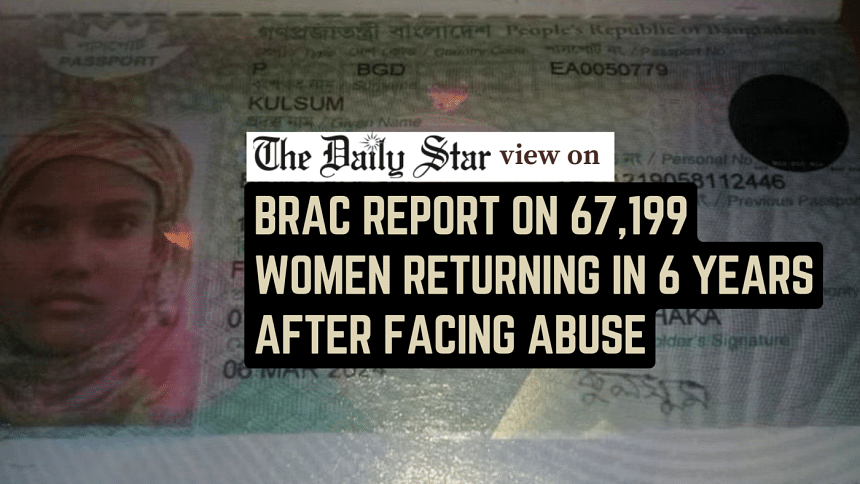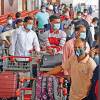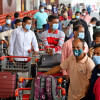Don’t leave returnee female migrants behind

It is deeply troubling to learn about the persistent abuse and exploitation faced by our female migrant workers abroad, as well as the depression and social isolation they experience upon returning home. According to a BRAC report, more than 4.7 lakh Bangladeshi migrant workers have returned over the past six years after enduring various forms of mistreatment and hardship. Among them, 67,199 women suffered sexual and physical abuse. In 2020 alone, 49,924 women were sent back, primarily from Middle Eastern countries. Upon their return, many shared harrowing accounts of their experiences. While the authorities in Bangladesh have done little to protect their rights abroad, they have also failed to provide the support necessary for their reintegration at home.
A combination of factors including financial struggles, lack of education and skills, unemployment, social insecurity, and environmental hardships often compel women to seek employment abroad. However, their desperate attempts to find better economic opportunities often end in exploitation, as they fall victim to trafficking, forced labour, and gender-based violence. In many cases, their wages are withheld, and working conditions are harsh, but they can hardly seek help due to language barriers. Restrictions on movement and communication further deepen their plight.
And it does not end upon return either. Many come home with serious injuries, illnesses, and psychological trauma, yet receive no support at the airport or access to medical care. Mental health challenges such as trauma, depression, and social isolation make their lives even more difficult, while many are burdened with debt. According to a 2023 study by the Bangladesh National Women Lawyers' Association, a staggering 37.3 percent of female migrants returned home empty-handed. Many also struggle to find work due to social stigma. Unless the government addresses these challenges, their dream for reintegration will remain out of reach.
We, therefore, urge the authorities to develop gender-responsive migration policies that protect the rights of female migrant workers and take meaningful action to improve their lives upon return. These vulnerable women need adequate medical care, psychological support, and financial assistance. The government must also ensure that the migration process is more sustainable. Instead of sending unskilled workers abroad, it should provide training to aspiring migrants, equipping them with the knowledge of their rights and responsibilities in destination countries. The structural vulnerabilities faced by Bangladeshi women throughout the migration journey must be effectively addressed to create a more secure system.


 For all latest news, follow The Daily Star's Google News channel.
For all latest news, follow The Daily Star's Google News channel. 









Comments